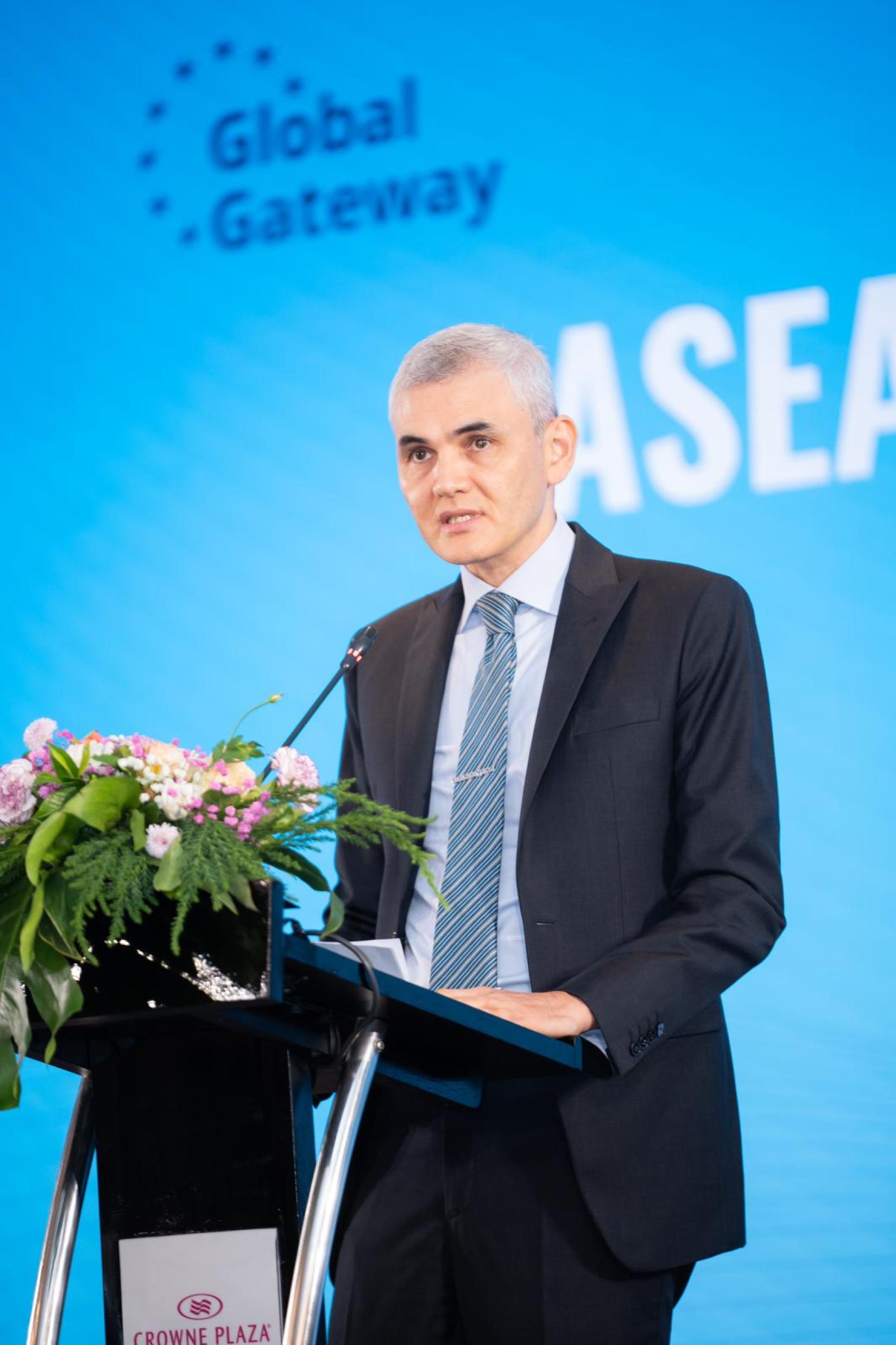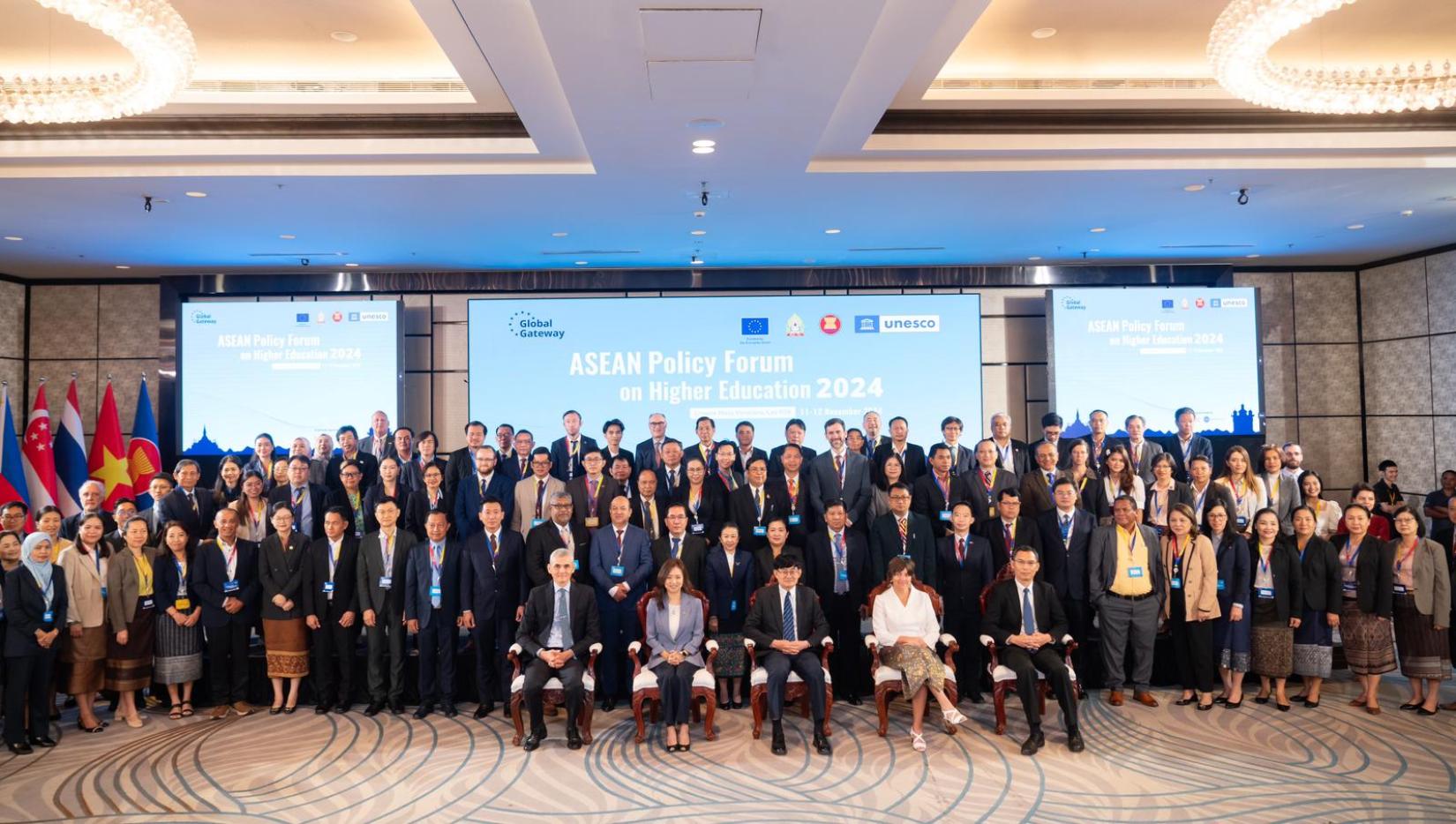Remarks at ASEAN Policy Forum on Higher Education 2024
Remarks by Bakhodir Burkhanov, UN Resident Coordinator

H.E. Prof. Phout Simmalavong, Minister of Education and Sports
H.E. San Lwin, Deputy Secretary-General for ASEAN Socio-Cultural Community
Ms. Veerle Smet, Head of Cooperation, EU Delegation to Lao PDR
Ms. Soohyun Kim, Regional Director, UNESCO Regional Office in Bangkok
Ladies and gentlemen –
I’m pleased to add my words on behalf of the United Nations in Lao PDR. I would like to start by congratulating the Government of Lao PDR for hosting the ASEAN Policy Forum on Higher Education – an opportunity to share knowledge and good practices in the region on a topic of huge relevance for the country.
Why is the focus of today’s Forum so important? Quality higher education plays a critical role in shaping individuals and societies in today's rapidly evolving world. It is a vital asset that fosters personal development and drives economic, technological, and social change. Educational attainment is particularly crucial for students from under-privileged backgrounds, offering them pathways to economic security and stable futures.
Higher education institutions are also at the forefront of innovation and research, contributing significantly to advancements in our societies. The climate crisis and COVID-19 pandemic underscored the importance of these institutions in addressing global challenges through green and digital solutions, and breakthroughs in health research.
The value of quality higher education in the modern world extends beyond individual benefits, encompassing broader societal implications for the economy, social equity and innovation. And this is why investing in education in countries like Lao PDR is investing in human capital, assuring a more equitable and sustainable future for all in the country.
At the SDG Summit last year, the UN Secretary-General put forward six transitions that would have a catalytic and multiplier effect across all Sustainable Development Goals. Education is one of the six SDG transitions. Without a doubt, quality, inclusive and resilient education accelerates progress on all SDGs. This is not an option, it is an imperative.
Building on what the esteemed speakers before me have said, I would like to share three reflections that I hope will guide the Forum’s deliberations:
- First, in support of the Joint Declaration on the Common Space in South-East Asian Higher Education, investments are needed in quality higher education and evidence-based research. A stronger and harmonised higher education sector will catalyse the region’s economies, societies and cultures, bringing them closer to the vision of an ASEAN Community. Quality education also fosters a culture of inquiry and critical thinking that are essential for tackling complex issues, including the emerging challenges of frontier technology.
- Second, we must focus on ensuring equitable access to education for all youth and adults, especially those from marginalized and vulnerable groups. According to the International Labour Organisation, 20% of young women aged 15-24 years in the ASEAN region are not in employment, education or training, compared to 13% of young men. We cannot expect societies to flourish with such a stark disparity in place. Policy-based action to advance gender equality and equitable access is needed through scholarships and flexible pathways to enter higher education, as well as ensuring lifelong learning opportunities for all.
- Third, there is a need to improve the relevance of higher education, especially in terms of facilitating transitions to employment. Partnership with private sector can help inform curricular reforms and improve employability of graduates. Private sector can mentor students, join skills councils, and advise on competencies in demand. This is a win-win for education and businesses. These partnerships can also support digital transformation and innovations to scale.
Ladies and gentlemen –
The United Nations in Lao PDR comprises 25 UN organizations working to support the achievement of the SDGs. This Policy Forum will help inform the UN’s strategies and partnerships in Lao PDR, drawing particularly on the regional and global expertise of UNESCO that has a unique mandate in helping countries achieve breakthroughs in SDG 4 on quality education.
These breakthroughs will not be possible without levelling the playing field. Throughout ASEAN, we need more equity in access to higher education as part of a whole-of-society approach in order to promote economic, social and environmental impact for all.
Together with ASEAN policymakers, youth, private sector, civil society, and development partners, the United Nations is committed to promoting equitable access and to advancing collaborative approaches to lifelong learning systems and future-facing skills development.
I would like to close by re-affirming our collective support for Lao PDR and the broader ASEAN Community in these crucial tasks. I would like to acknowledge the leadership of UNESCO, in particular, in bringing to bear integrated solutions in the fields of higher education and sciences, in partnership with other UN actors and global thought leaders.
Thank you.


